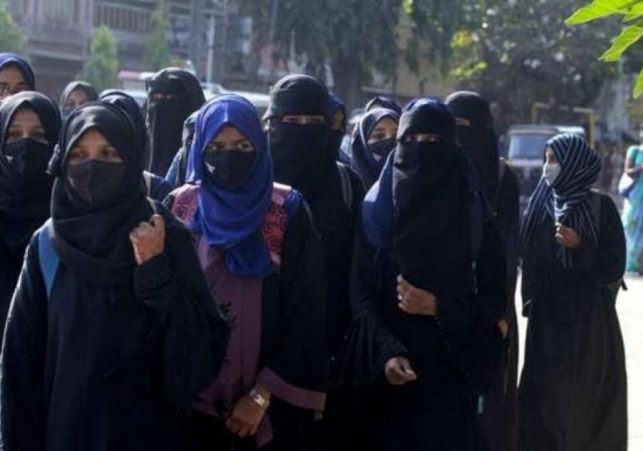

Outside criticism of the Karnataka hijab row is not welcome: India opposes foreign criticism of the state.
Arindam Bagchi, a spokesperson for the external affairs ministry, referred to remarks made by "some countries" about the dress code in Karnataka's educational institutions but did not name any specific country.
The statement was released just hours after Rashad Hussain, the US ambassador at large for international religious freedom, tweeted that hijab bans in schools violate religious freedom and stigmatize women and girls.
In a statement, Bagchi said, “A matter regarding dress code in some educational institutions in the state of Karnataka is under judicial examination by the...High Court of Karnataka. Our constitutional framework and mechanisms, as well as our democratic ethos and polity, are the context in which issues are considered and resolved.”
He added, “Those who know India well would have a proper appreciation of these realities. Motivated comments on our internal issues are not welcome.”
The state of Karnataka has been rocked by controversy, with Muslim girls wanting to exercise their right to wear the hijab in schools. In December of last year, a group of students at a Karnataka college were banned from attending classrooms and advised not to wear the hijab, a Muslim women's headscarf. The incident at one institution quickly escalated into a big statewide issue, and the debate extended to other colleges.
The Karnataka government postponed the reopening of educational institutes on Friday night, despite the high court's interim decision instructing authorities to reopen schools and colleges that had been closed since Wednesday. As a precaution, the state government has extended the closure until February 16, however, exams and online lectures will proceed as usual.
The high court's interim decision also prohibited pupils from wearing saffron shawls or hijabs in the classroom, as well as from displaying religious flags.
The US envoy for international religious freedom, who took office last month, tweeted about religious freedoms on the same day that external affairs minister S Jaishankar met with US Secretary of State Antony Blinken in Melbourne after both leaders attended a Quadrilateral Security Dialogue (Quad) meeting of foreign ministers.
“Religious freedom includes the ability to choose one’s religious attire. The Indian state of Karnataka should not determine permissibility of religious clothing. Hijab bans in schools violate religious freedom and stigmatize and marginalize women and girls,” in a tweet Hussain said.
He further added, "Our constitutional framework and mechanisms, as well as our democratic ethos and polity, are the context in which issues are considered and resolved. Those who know India well would have a proper appreciation of these realities. Motivated comments on our internal issues are not welcome."
Hussain is the son of Indian-American immigrants and previously served as former President Barack Obama's special envoy to the Organization of Islamic Cooperation (OIC). His appointment as the US ambassador at large for international religious freedom was confirmed by the US Senate by a landslide majority last December.
Protests for and against the hijab have erupted in Karnataka, and similar protests have erupted in Uttar Pradesh, Rajasthan, Maharashtra, Andhra Pradesh, and Delhi.
Meanwhile, the Karnataka High Court had earlier requested the state government to reopen educational institutions and barred all students from wearing saffron shawls, scarves, Hijab, or any religious flag within the classroom in an interim order pending the resolution of all petitions related to the Hijab row.
Also read: Hijab prohibition infringes on religious freedom us